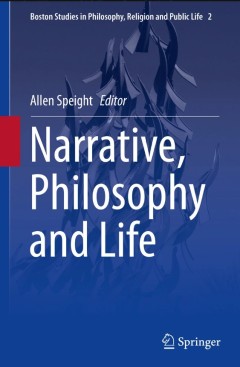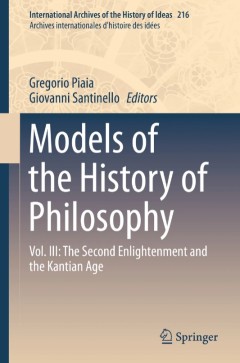Filter by

A History of Biophysics in Contemporary China
This book gives a concise history of biophysics in contemporary China, from about 1949 to 1976. It outlines how a science specialty evolved from an ambiguous and amorphous field into a fully-fledged academic discipline in the socio-institutional contexts of contemporary China. The book relates how, while initially consisting of cell biologists, the Chinese biophysics community redirected their …
- Edition
- Ed. 1
- ISBN/ISSN
- 978-3-319-18093-9
- Collation
- -
- Series Title
- SpringerBriefs in History of Science and Technology
- Call Number
- 501 LUK h

Narrative, Philosophy and Life
This notable collection provides an interdisciplinary platform for prominent thinkers who have all made significant recent contributions to exploring the nexus of philosophy and narrative. It includes the latest assessments of several key positions in the current philosophical debate. These perspectives underpin a range of thematic strands exploring the influence of narrative on notions of self…
- Edition
- 1
- ISBN/ISSN
- 978-94-017-9348-3
- Collation
- IX, 210
- Series Title
- Boston Studies in Philosophy, Religion and Public Life
- Call Number
- -

The Vienna Circle : Studies in the Origins, Development, and Influence of Log…
This abridged and revised edition of the original book (Springer-Wien-New York: 2001) offers the only comprehensive history and documentation of the Vienna Circle based on new sources with an innovative historiographical approach to the study of science. With reference to previously unpublished archival material and more recent literature, it refutes a number of widespread clichés about "neo-p…
- Edition
- -
- ISBN/ISSN
- 978-3-319-16561-5
- Collation
- -
- Series Title
- -
- Call Number
- -

Empirical Philosophy of Science Introducing Qualitative Methods into Philoso…
The book examines the emerging approach of using qualitative methods, such as interviews and field observations, in the philosophy of science. Qualitative methods are gaining popularity among philosophers of science as more and more scholars are resorting to empirical work in their study of scientific practices. At the same time, the results produced through empirical work are quite different f…
- Edition
- -
- ISBN/ISSN
- 978-3-319-18600-9
- Collation
- VI, 171
- Series Title
- -
- Call Number
- -

Models of the History of Philosophy:Vol. III: The Second Enlightenment and th…
This is the third volume of Models of the History of Philosophy, a collaborative work on the history of the history of philosophy dating from the Renaissance to the end of the nineteenth century. The volume covers a decisive period in the history of modern thought, from Voltaire and the great “Encyclopédie” of Diderot and d'Alembert to the age of Kant, i.e. from the histoire de l'esprit hu…
- Edition
- 1
- ISBN/ISSN
- 978-94-017-9965-2
- Collation
- XXXII, 1000
- Series Title
- International Archives of the History of Ideas Archives internationales d'histoire des idées
- Call Number
- -

The Sense of Things
This book proposes a new interpretative key for reading and overcoming the binary of idealism and realism. It takes as its central issue for exploration the way in which human consciousness unfolds, i.e., through the relationship between the I and the world—a field of phenomenological investigation that cannot and must not remain closed within the limits of its own disciplinary borders. The b…
- Edition
- -
- ISBN/ISSN
- 978-3-319-15395-7
- Collation
- -
- Series Title
- -
- Call Number
- -
 Computer Science, Information & General Works
Computer Science, Information & General Works  Philosophy & Psychology
Philosophy & Psychology  Religion
Religion  Social Sciences
Social Sciences  Language
Language  Pure Science
Pure Science  Applied Sciences
Applied Sciences  Art & Recreation
Art & Recreation  Literature
Literature  History & Geography
History & Geography